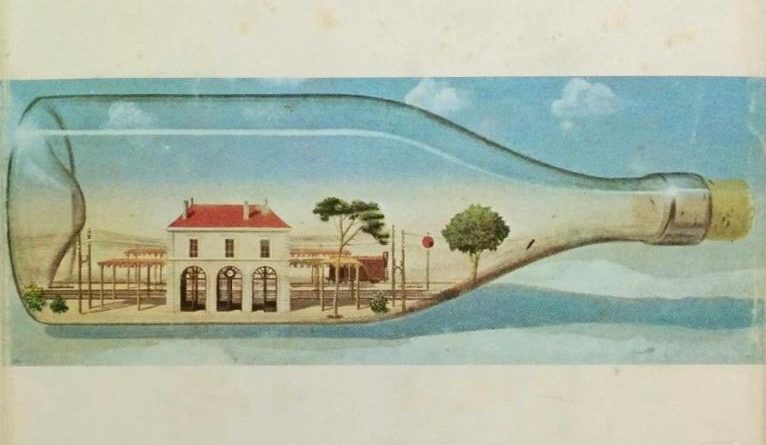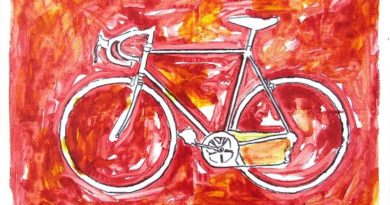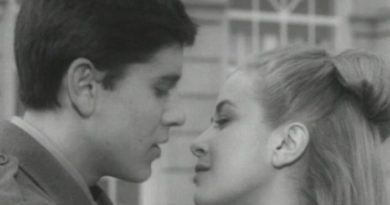Multiple journeys from white void – Se in una notte fantascientifica un viaggiatore (Prima parte)
di Gouthama Siddarthan
Quando il mio libro, I travagli politici del viaggio nel tempo (tradotto da Davide Mana), venne pubblicato in italiano, fu Domenico Attianese che per primo lo presentò al pubblico. È stato grazie alla sua introduzione che il mio libro ha catturato una buona attenzione. Inoltre, l’articolo critico di Vincenzo Barone Lumaga sul libro è stato ampiamente apprezzato dai lettori italiani. Successivamente, i critici Fabrizio Borgio, Massimo Luciani e il noto curatore Carmine Treanni, direttore della rivista Delos SF, hanno ravvivato il fuoco dell’interesse degli italiani.
Nel frattempo, la mia casella di posta elettronica pullulava di un’ondata di lettere dall’Italia, tra le quali la più importante era stata quella di Roberto Paura. Lodando la prospettiva esposta nel mio libro, Roberto mi chiedeva perché lo avessi fatto uscire così prematuramente, aggiungendo che avrebbe desiderato fosse prima pubblicato su una delle riviste europee di lingua inglese, in modo da far avere al libro una portata globale. Mi ha suggerito anche di presentare una nuova versione che includesse le traduzioni italiane di Ray Bradbury e Alfred Bester e che io la pubblicassi attraverso una casa editrice italiana. Sono ancora grato per le sue gentili considerazioni.
Potrebbe sembrare che io stia divagando, ma non senza ragione. La mia intenzione sarebbe quella di parlare in modo elaborato di una lettera che ho ricevuto di recente. Sì! Era una mail particolare, in quanto non aveva traccia del mittente. Domandandomi se fosse possibile inviare e-mail anonime, l’ho esaminata.
Ho detto che l’ho letta? No, non l’ho fatto, perché era scritta in un linguaggio strano che sfidava il mio intelletto. Stimolato dall’ansia e dalla curiosità, mi rivolsi a Google che restò interdetto a sua volta. Piena di simboli esotici e stravaganti, la mail mi aveva fatto girare vorticosamente la testa in una tempesta di confusione. È la lingua dei Klingon? Meglio consultare il klingonista Lawrence M.Schoen. (È molto noioso che spedisca identici auguri di compleanno in Klingon agli amici di Facebook).
Tornando alla mail anonima, l’ho esaminata attentamente. Mentre vagavo nel territorio di simboli che turbinavano e zigzagavano come in un labirinto, mi sentivo un fuoco che toccava ogni poro del mio corpo con le sue fiamme infinite e le porte che si aprivano sui suoi interni misteriosi.
*************
Negli anni ’90, dopo aver letto Se una notte d’inverno un viaggiatore, sono impazzito per Italo Calvino e poiché l’ossessione mi afferrava con prepotenza, sono andato alla ricerca dei suoi scritti e ho letto tutto ciò su cui potevo mettere le mani. La frenesia era così potente da farmi imparare a memoria il romanzo. A un certo punto, ero a tal punto impazzito che vagavo nelle nostre strade natie alla ricerca di una donna appassionata di letteratura come Ludmilla.
È un fatto che i nostri concili letterari tamil non possono vantare più di 7-12 partecipanti, tutti uomini. La sezione letteraria delle moderne popolari librerie tamil è sempre deserta, le bancarelle vendono libri di terza categoria che piacciono alla folla. Ma io personalmente voglio delle Ludmilla, non delle Marilyn Monroe.
Sebbene la mia mente fosse frustrata, non aveva rinunciato alla sua ricerca. In una giornata di studio intenso, mentre sfogliavo le pagine del libro Sotto il sole giaguaro in una bancarella di libri in inglese, trattenni il respiro: O cielo! Laggiù di fronte a me stava in piedi Ludmilla, con Se in una notte d’inverno un viaggiatore fra le mani. Sì, la stessa Ludmilla che avevo sempre desiderato.
Per un momento, tutto dentro di me si fermò, i suoi occhi e i miei si incontrarono in un punto orizzontale; poi il famoso verso poetico del nostro poema epico Tamil Kambaramayanam tornò alla vita: “Nostro Signore ha guardato e così ha fatto lei.”(1)
Quel luogo era in fiamme con i raggi del Sole Giaguaro.
Con un dolce sorriso che le scivolava sulle labbra, lei si spostò verso la bancarella successiva mentre il sangue mi scorreva più velocemente nelle vene. La stavo seguendo, piuttosto ansioso, su come avviare una conversazione. Mentre si voltava e mi lanciava un’occhiata, le sue palpebre si mossero come le ali di una farfalla. Una vorticosa ciocca scendeva dalla sua scriminatura e pendeva dalla sua tempia sinistra, accelerando a 360 gradi la rivoluzione terrestre.
Mentre stavamo prendendo il caffè in una chiosco all’aperto, dopo le presentazioni di rito, mi capitò di sapere che apparteneva all’Italia, come mi aspettavo. Era venuta a visitare le sculture nel Tamil Nadu. Non conosceva il Tamil, né io conoscevo l’italiano. Quando balbettavo nel mio povero inglese, lei poteva provare a indovinare qualunque cosa cercassi di comunicare; in quel momento, odiavo la politica linguistica del Tamil Nadu che aveva negato a me, come tanti, l’opportunità di imparare altre lingue oltre a quella materna.
Disse qualcosa come il suo nome; ma senza prestare attenzione, le chiesi se potevo chiamarla Ludmilla. Dopo attimi durante i quali mi fissò intensamente, lei annuì sorridendo come se fosse d’accordo. Aggiunse che essendo una studentessa di linguistica, stava facendo ricerche sulle lingue morenti. Non era abbastanza per creare una sintonia con lei? Così, dissi: “Conosco diverse caratteristiche di questi linguaggi”, e i suoi occhi color mandorla si fusero con i miei.
In quel momento, iniziai a suonare la mia chitarra su una panchina di cemento in un angolo del pascolo di fronte al Colosseo di Roma. Note sbalordite continuavano a rotolare fuori dalle corde che vibravano più intensamente mentre il tono si alzava lentamente, come se fosse in risonanza con i suoni del tuono. Mentre suonavo la poesia più romantica del Kurunthogai, il lavoro della nostra gloriosa letteratura Tamil Sangam(2), “Chiunque sia mia madre è tua”, la musica riempì il muro antidiluviano del Colosseo. Con le dita che sfioravano la corda del Sol, la chiave della benedizione nella musica barocca, le note inondavano il paesaggio e Abracadabra! C’era Ludmilla che sbocciava come un fiore nel crescendo di note. Mi prese il dito gocciolante di sangue, stanco com’era di suonare la chitarra, e lo baciò con le sue labbra adorabili: Poi dissi, “Ti amo, Ludmilla”.
Poi, un improvviso clacson del treno elettrico mi riportò al Tamil Nadu.
Lasciando da parte la sua tazza di caffè vuota, lei si alzò per andarsene, mentre in me cresceva la tensione.
“Senti, perché non ci scambiamo i numeri di telefono?” dissi. (Questo è quello a cui miravo. “O, lettore, muovendomi intorno a lei come un serpente a sonagli!” come dice Calvino).
“Come posso incontrarti di nuovo? Potrei avere il tuo numero di telefono? Posso essere di aiuto per la tua ricerca linguistica?” dissi.
“Dato che sono venuta qui solo come turista, non ho un numero di contatto personale. Per favore, dammi il tuo. Ti chiamerò”, rispose.
Dopo aver ottenuto il mio numero, fermò agitando la mano un auto-rikshaw, vi entrò con la brezza e scomparve.
Tornato a casa, non riuscivo a ricompormi, irrequieto com’ero, in attesa della sua chiamata. Il giorno dopo mi chiamò per dirmi che potevamo incontrarci al museo Egmore, mandandomi al settimo cielo. Ora, un altro tipo di ansia mi attanagliava la mente. Ricordai che lei avesse detto qualcosa sulla sua ricerca linguistica. Quindi, per aiutarla e, cosa più importante, per stupirla incredibilmente e quindi sostenere la sua relazione, dovevo raccogliere e darle alcuni dati vitali per il suo lavoro. E avrebbe dovuto essere qualcosa che non aveva mai sentito. Mentre riflettevo sulla questione, mi balenò in mente Confluence, il racconto di Brian W. Aldiss. La storia, liberandosi dalla consueta forma narrativa dello storytelling, sembra un dizionario per una nuova lingua. Vale a dire, Aldiss propone una pagina dal dizionario della lingua che appartiene a un altro pianeta. Quella pagina mostra delle visioni della vita sul mondo esotico. È un testo che amplifica l’arte, la cultura, la politica e la società, il calore e l’esistenza umana attraverso le parole del lessico. Un testo meraviglioso! Una cosa così straordinaria dovrebbe essere scoperta. In un istante, una nota musicale balenò nella mia mente brulicante di flussi di pensieri.
*************
Era la nota musicale di Muthu, il mio amico d’infanzia, che portava abiti sporchi su un asino.
Sì! Nel nostro paese esiste una casta chiamata Vannar, oggi chiamato lavandaio, il cui compito principale è lavare gli indumenti sporchi. Come parte del nostro sordido vecchio Varnashram (classificazione della società in quattro categorie principali, basate sull’occupazione), ai Vannar è stato assegnato il compito di lavare i vestiti sporchi della gente, di coloro che sono sopra di loro in rango, occupazione, ricchezza e stato. È stato praticato e viene ancora praticato nella nostra società, dando vita a innumerevoli caste e quindi, creando un rigido sistema di caste che ha oppresso per secoli i diseredati. Nei villaggi, la comunità dei “Vannar” è ancora oggi soggetta al crudele e straziante lavoro di lavare gli indumenti sporchi per una miseria. Tra le persone di quella comunità, c’è una rara consuetudine linguistica. Mentre raccolgono vestiti da varie persone, essi iscrivono piccoli simboli all’interno degli abiti allo scopo di identificarli. Questi marchi sono chiamati vannaan kuris (simboli dei lavandai). Tra questi segni identificativi, si cela un simbolismo di oltre 2000 anni fa, oltre a una nuova prospettiva glottologica. La qualità dei simboli e lo sfondo della loro formazione meritano una profonda ricerca.
(Fine prima parte)
Traduzione di Davide Mana
Supervisione di Fabio Lastrucci
Segue il testo originale
If on a science fiction’s night a traveller (Part One)
by Gouthama Siddarthan
When my book, ‘I travagli politici del viaggio nel tempo’ – (Translation by Davide Mana), was published in Italian, it was Domenico Attianese, who for the first time introduced it. It was thanks to his introduction that my book hogged a widespread attention. Also, Vincenzo Barone Lumaga’s a critical article about the book was widely acclaimed among the Italian readers. Consequently, critics Fabrizio Borgio, Massimo Luciani and the famous curator Carmine Treanni, editor of Delos SF magazine, added fuel to the rage.
Meanwhile, my email inbox was teeming with a spate of letters from Italian, among which the most important is Roberto Paura’s. Praising the perspective put forward in my book, he asked me why I had prematurely published the book and said how he wished I had got it published in any of the European English magazines first so that the book would have had a global reach. He also suggested that I bring out a new version incorporating the Italian translations of Ray Bradbury and Alfred Bester and publish it through a Italian publishing house. My heartfelt thanks to him for his kind opinions.
I may seem to be beating about the bush; but it’s not without reason. For, my original intention is to speak elaborately about a letter that I had got recently.
Yes! It was a peculiar mail in that it had no trace of the sender. Wondering if such anonymous mails were possible, I went through it. Did I say I went through it? Nay, I didn’t, for it was written in a weird language that defied my intellect. Anxiety and agility spurring me on, I turned to Google which, in turn, stood dumbfounded. Full of exotic and outlandish symbols, the mail set me whirling in the vortex of confusion.
Is it the Klingons language? We had better consult Klingonist Lawrence M.Schoen. (It is highly boring that he conveys birthday greetings to Facebook friends identically in the Klingonese. He must be told that it is a challenge for a seasoned artiste to convey greetings in a language with an elegance and charm that characterize symbols operating in the boundless linguistic possibilities).
Coming back to the anonymous mail, I examined it deeply. As I trod the terrain of symbols swirling and zigzagging like a labyrinth, it felt like a fire that touched every pore of my physique with its never-ending flames and endless doors kept on opening up to the mysterious interiors.
*************
In 1990s, after reading ‘If on a winter’s night a traveller’, I turned mad about Italo Calvino and the craze gripping me frenetically, I went in search of his writings and read whatever I lay my hands on. The madness was so mighty that I went to the extent of learning the novel by heart. At one point of time, I turned crazy to the point of wandering about in our native streets in search of a woman literary buff a la Ludmilla.
It is an in-thing that our Tamil literary conclaves witness no more than 7 to 12 participants, all men. The literary section of simple modern Tamil book houses is always deserted, the stalls selling third-rate books teeming with crowds. But I personally want Ludmillas, not Manroes.
Though my mind became vexed, it had not given up its search. On a day of an intense search, when I was leafing through pages of the book, ‘Under the Jaguar Sun’ in an English book stall, I held my breath: O me! Over there facing me was standing Ludmilla, ‘If on a winter’s night a traveller’ in her hands. Yes. The same Ludmilla I have for ages been craving for.
For a moment, all movements in me came to a standstill, her eyes and mine meeting at a horizontal point; then the famous poetic line in our Tamil epic ‘Kambaramayanam’ came back alive: “Our Lord glanced and so did she.”
That place was ablaze with rays from Jaguar Sun.
A sweet smile flitting across lips, she moved to the next stall, my blood flowing faster in veins. I was following her, quite anxious about how to strike a conversation. As she turned and threw a glance at me, her eyelids fluttered like the wings of a butterfly. A swirling strand was descending from her elegant parting of hair and hanging from her left temple, quickening the 360-degree revolution of the earth.
As we were having Coffee at a stall outside after introductory remarks, I happened to know she belonged to Italy, as I had expected. She had come to visit sculptures in Tamil Nadu. She did not know Tamil, nor did I know Italian. When I was stammering in my poor English, she could guess whatever I tried to communicate; at that moment, how I hated Tamil Nadu’s language-oriented politics which had denied me, like so many, the opportunity to learn other languages than the mother tongue.
She told something like her name; but paying no heed to it, I asked her if I could call her Ludmilla. After moments of keenly staring at me, she smilingly nodded as if in agreement.
She said that being a student of linguistics, she was researching the dying languages. Was it not enough for me to strike a chord with her? So, I said, “I know certain features of such languages”, Her almond-hued eyes merged with mine.
At that moment, I began playing my guitar on a cement bench in a corner of the pasture opposite the Rome’s Colosseum. Thunderstruck notes kept tumbling out of the strings that vibrated more intensely as the pitch was slowly rising, as if in resonance with the sounds of thunder. As I played the most romantic poem from ‘Kurunthogai’, the work of our glorious Tamil Sangam literature2, “Whoever are my mom and yours,” the music filled the antediluvian wall of the Colosseum. My fingers flitting across the G chord, the key of benediction in Baroque music, the notes flooded the landscape and Hey Presto! Bursting through the swelling notes was Ludmilla. She took my finger dripping with blood, tired as it was from playing guitar, and kissed it with her lovely lips: Then I said, “I love you, Ludmilla.”
Then, a sudden horn from the electric train pulled me back to Tamil Nadu. Casting aside her empty coffee cup, she rose to depart, as I grew tense.
“Listen, why don’t we exchange our phone numbers?” I said. (This is what you were aiming at. O, Reader, moving around her like a rattlesnake!” so says Calvino).
“How can I meet you again? Could I get your phone number? I can be of god help for your linguistic research?” I said.
“As I have come down here just as a tourist, I have no personal contact number. Please, give me yours. I will call you up,” she said.
After getting my number, she waved to an autorickshaw passing by, breezed into it and disappeared.
Back home, I couldn’t compose myself, fidgeting as I was, waiting for her call. Next day, she called me to say we could meet at the Egmore museum, putting me on the cloud nine. Now, another kind of anxiety gripped my head. I remembered she said something about her linguistic research. So, to help her and more importantly, to impress her amazingly and thereby sustain her relationship, I must collect and give her some data vital to her work. That should be something she had unheard of.
As I was pondering over the question, the story, ‘Confluence’, by Brian W. Aldiss flashed across my mind. The story, having shed the usual story-telling narrative form, looks like a dictionary for a new language. That is to say, Aldiss puts forward a page from the dictionary of the language belonging to a planet. That page has visions of the life on the exotic planet. It is a text that amplifies the art, culture, politics and society, the warmth and human existence through the words in the lexicon. A wonderful text it is! Such an amazing thing should be discovered. In an instant, a musical note flashed in my head teeming with streams of thoughts.
*************************
It is the musical note of Muthu, my childhood friend, who used to carry dirty clothes through a donkey.
Yes! In our country, there is a caste called ‘Vannar’, nowadays called washerman, whose prime duty it is to wash the dirty clothes. As part of our sordid age-old Varnashram (classification of the society into four major categories, based on occupation), the Vannars have been assigned the work of washing dirty clothes of the people, who are above them in rank, occupation, wealth and status. It has been practised and is still being practised in our society, giving birth to countless castes and thereby, having built-up a rigid caste system that has for ages oppressed the downtrodden. In villages, the ‘Vannar’ community is even now subjected to the cruel and harrowing work of washing dirty clothes for a pittance. Among the people of that community, there is a rare linguistic perspective. While collecting clothes from various people, they inscribe small symbols inside the clothes for the purpose of identification. These marks are called ‘vannaan kuris’ (washerman’s sympols). Among these identification marks, there lies hidden an over 2,000-year-old symbolism, as also a new linguistic outlook. The symbols’ quality and the background of their formation merit a deep research.




